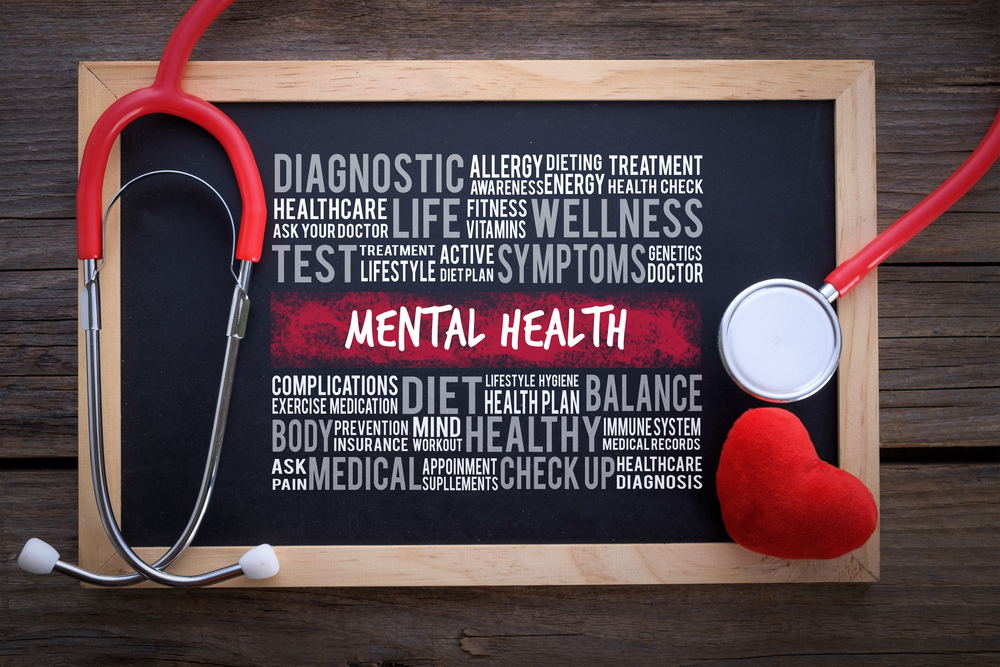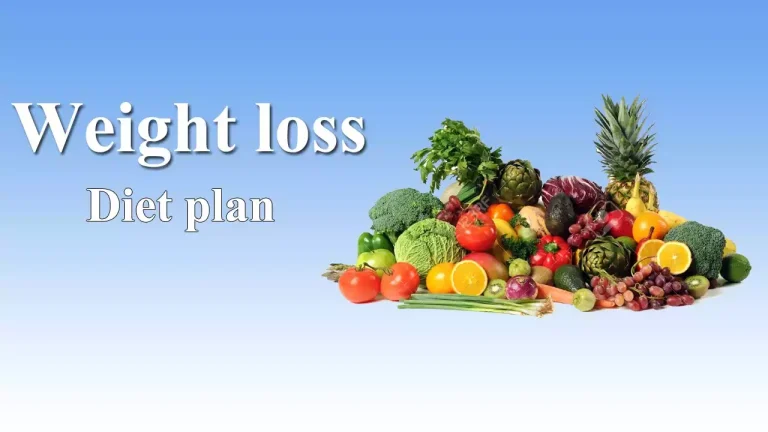Diet Plan Weight Loss Well-being
With countless options and conflicting information available, choosing the right diet plan can be overwhelming and confusing.
However, the key to successful weight loss and improved health lies in finding a balanced and sustainable approach.
In this article, we will guide you through the best diet plan for achieving your weight loss goals and enhancing your overall wellbeing.
Whether you are looking to shed a few pounds or make long-term lifestyle changes, this diet plan is designed to provide you with the necessary tools and knowledge to reach your desired results.
Say goodbye to crash diets and restrictive eating, and say hello to a healthier and happier you.
So let’s dive in and discover the best diet plan for weight loss and improved wellbeing.
Table of Contents Diet Plan Weight Loss Well-being
Balance your meals for success.
To achieve the best results with “The Best Diet Plan for Weight Loss and Improved Wellbeing,” it is crucial to focus on balancing your meals.
This means incorporating a variety of nutrient-dense foods in appropriate portions throughout the day.
Aim to include a combination of lean proteins, whole grains, fruits, vegetables, and healthy fats in each meal.
Incorporating protein-rich foods like lean meats, fish, tofu, or legumes can help keep you feeling satisfied and promote muscle growth.
Pairing these proteins with whole grains, such as brown rice or quinoa, can provide sustained energy and essential nutrients.
Additionally, make sure to include a generous serving of colorful fruits and vegetables to provide vital vitamins, minerals, and fiber.
Lastly, do not forget to include sources of healthy fats like avocados, nuts, and olive oil, as they are important for brain function and overall well-being.
By maintaining a balanced meal plan, you can optimize your weight loss journey and improve your overall health and well-being.
Incorporate whole foods for nutrition.
Incorporating whole foods into your diet is essential for achieving optimal nutrition and reaching your weight loss and improved wellbeing goals.
Whole foods, which include fruits, vegetables, whole grains, lean proteins, and healthy fats, are rich in vitamins, minerals, and fiber that your body needs to function at its best.
By choosing whole foods over processed or packaged options, you can ensure that you are providing your body with the necessary nutrients without unnecessary additives or preservatives.
Including a variety of whole foods in your meals will not only support weight loss efforts but also promote overall health and wellbeing.
Try to incorporate colorful fruits and vegetables, such as berries, spinach, and broccoli, into your daily meals to boost your intake of antioxidants and essential vitamins.
Opt for whole grains like quinoa or brown rice instead of refined grains to increase fiber content and provide sustained energy.
Additionally, choose lean proteins like chicken, fish, or tofu to support muscle growth and repair.
By making whole foods the foundation of your diet, you can nourish your body and achieve lasting weight loss and improved wellbeing.
Limit processed and sugary foods.
When following The Best Diet Plan for Weight Loss and Improved Wellbeing, it is important to limit processed and sugary foods.
These types of foods are often high in calories, unhealthy fats, and added sugars, which can contribute to weight gain and negatively impact your overall health.
Instead, focus on choosing whole, unprocessed foods that are nutrient-dense and provide your body with essential vitamins and minerals.
Swap out sugary drinks and snacks for healthier alternatives like water, herbal teas, and fresh fruits.
Additionally, opt for homemade meals and snacks whenever possible, as they allow you to have more control over the ingredients and avoid unnecessary additives.
By limiting processed and sugary foods, you can support your weight loss goals and improve your overall wellbeing.
Portion control is key.
To truly succeed with The Best Diet Plan for Weight Loss and Improved Wellbeing, it is crucial to understand the importance of portion control.
It’s not just about what you eat, but also how much you eat.
Even if you are consuming healthy, nutrient-dense foods, consuming excessive portions can still lead to weight gain.
By practicing portion control, you can ensure that you are consuming the right amount of calories for your body’s needs, while still enjoying a variety of foods.
Start by paying attention to serving sizes and reading food labels to understand the recommended portions.
Use measuring cups or a food scale to accurately portion out your meals and snacks.
Additionally, be mindful of your hunger and fullness cues, as this can help prevent overeating.
Remember, it’s not about depriving yourself, but rather finding a balance that supports your weight loss goals and promotes a healthier lifestyle.
Stay hydrated for optimum health.
Proper hydration is a fundamental aspect of The Best Diet Plan for Weight Loss and Improved Wellbeing.
Ensuring that you stay adequately hydrated throughout the day is essential for maintaining optimal health and supporting your weight loss goals.
Water is not only vital for regulating bodily functions and maintaining proper organ function, but it can also help control your appetite and support efficient digestion.
Aim to drink at least eight glasses of water per day, and even more if you are physically active or live in a hot climate.
Carry a reusable water bottle with you as a reminder to stay hydrated and make it a habit to sip water throughout the day.
Additionally, incorporating hydrating foods such as fruits and vegetables into your diet can contribute to your overall fluid intake.
By prioritizing hydration, you can enhance your overall well-being and support your weight loss journey.
Include regular physical activity.
To maximize the effectiveness of The Best Diet Plan for Weight Loss and Improved Wellbeing, it is crucial to include regular physical activity in your routine.
Engaging in regular exercise not only helps burn calories and promote weight loss, but it also offers a wide range of additional health benefits.
Physical activity can improve cardiovascular health, strengthen muscles and bones, enhance mood and mental well-being, and boost overall energy levels.
Aim for at least 150 minutes of moderate-intensity aerobic exercise or 75 minutes of vigorous-intensity aerobic exercise each week, along with strength training exercises at least twice a week.
Find activities that you enjoy, whether it’s brisk walking, cycling, swimming, or dancing, and make them a regular part of your schedule.
Remember to start slowly and gradually increase the intensity and duration of your workouts to prevent injury.
Incorporating regular physical activity into The Best Diet Plan for Weight Loss and Improved Wellbeing will not only enhance your weight loss efforts but also contribute to your overall health and well-being.
Don’t forget about self-care.
In order to fully reap the benefits of The Best Diet Plan for Weight Loss and Improved Wellbeing, it is essential to prioritize self-care.
Taking care of your physical, mental, and emotional well-being is just as important as following a healthy eating plan.
Make sure to allocate time for activities that promote relaxation and reduce stress, such as practicing mindfulness or engaging in hobbies that bring you joy.
Prioritize getting enough sleep each night, as it plays a critical role in weight management and overall health.
Additionally, don’t forget to schedule regular check-ups with your healthcare provider to monitor your progress and address any concerns.
Remember, self-care is not a luxury, but a necessary component of maintaining a healthy lifestyle and achieving long-term success with your weight loss journey.
Seek support for accountability and motivation.
To enhance your adherence and boost your motivation, it is highly recommended to seek support for accountability and motivation throughout your journey with The Best Diet Plan for Weight Loss and Improved Wellbeing.
Connecting with others who share similar goals can provide a sense of community and encouragement, making it easier to stay on track.
Consider joining a support group, either in-person or online, where you can share your experiences, challenges, and successes.
Having someone to hold you accountable and provide guidance when faced with obstacles can greatly increase your chances of achieving your weight loss goals.
Additionally, working with a registered dietitian or a certified health coach can provide you with personalized guidance and support tailored to your specific needs and preferences.
Remember, you don’t have to navigate this journey alone – seeking support can make all the difference in your long-term success.
In conclusion, choosing the best diet plan for weight loss and improved wellbeing is a personal decision that should not be taken lightly.
It is important to consult with a healthcare professional and consider your own individual needs and preferences when making this decision.
Remember, a healthy and sustainable diet is one that prioritizes balanced nutrition and nourishes your body with whole, unprocessed foods.
With dedication and patience, you can find a diet plan that works for you and helps you reach your health and wellness goals.
FAQ
What are the key components of a successful diet plan for weight loss and improved wellbeing?
To achieve successful weight loss and improved wellbeing, you need to focus on three key components in your diet plan.
Firstly, incorporate a balanced and nutritious meal plan that includes a variety of fruits, vegetables, lean proteins, whole grains, and healthy fats.
Secondly, maintain portion control to avoid overeating and promote a healthy calorie deficit.
Lastly, prioritize regular physical activity to boost metabolism and burn calories.
By combining these elements, you can create a sustainable and effective diet plan that will help you achieve your weight loss goals and improve your overall wellbeing.
How important is portion control in a diet plan for weight loss?
Portion control is crucial in your diet plan for weight loss.
By practicing portion control, you can effectively manage your calorie intake and create a calorie deficit, which is essential for shedding excess pounds.
By being mindful of your portion sizes, you can avoid overeating and ensure that you are consuming the right amount of nutrients.
It allows you to enjoy a variety of foods without compromising your weight loss goals.
So, remember to pay attention to your portions and make it a priority in your diet plan to achieve successful weight loss.
Are there any specific types of foods that should be avoided or included in a diet plan for weight loss and improved wellbeing?
When it comes to your diet plan for weight loss and improved wellbeing, it’s important to avoid foods high in added sugars, saturated fats, and refined grains.
Instead, focus on including nutrient-dense foods such as fruits, vegetables, lean proteins, whole grains, and healthy fats like avocados and nuts.
These foods provide essential vitamins, minerals, and fiber, while keeping you feeling satisfied.
Remember, you are in control of what you eat, so make informed choices that support your goals and overall health.
Is it necessary to count calories or macronutrients in a diet plan for weight loss, or are there other effective approaches?
You don’t necessarily have to count calories or macronutrients to achieve weight loss.
There are other effective approaches that can work for you.
Instead of focusing on numbers, you can adopt a mindful eating approach.
Listen to your body’s hunger and fullness cues, and choose nutritious, whole foods in appropriate portions.
Pay attention to the quality of your food choices and prioritize a balanced diet that includes lean proteins, fruits, vegetables, whole grains, and healthy fats.
Additionally, incorporating regular physical activity and maintaining a consistent routine can also contribute to weight loss without the need for strict calorie or macronutrient counting.
How does exercise complement a diet plan for weight loss and improved wellbeing, and what types of exercises are most beneficial?
To complement your diet plan for weight loss and improved wellbeing, exercise plays a vital role.
By engaging in regular physical activity, you can enhance your calorie-burning potential and boost your overall health.
Incorporating a combination of cardiovascular exercises like running or cycling, alongside strength training exercises such as weightlifting or bodyweight workouts, can help you shed excess pounds and build lean muscle.
These exercises not only aid in weight loss but also improve cardiovascular fitness, increase strength, and promote a sense of wellbeing.
Remember to consult with a professional to determine the most suitable exercises for your specific goals and fitness level.







